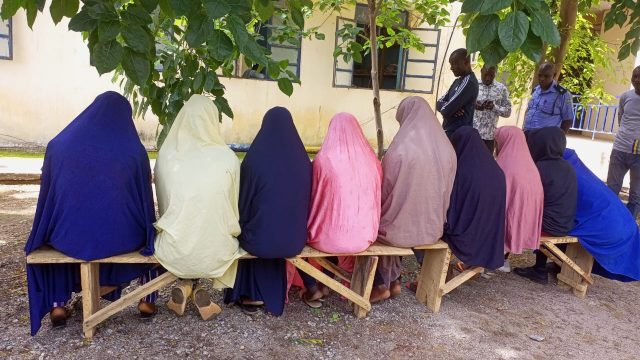By Milcah Tanimu
As Nigeria grapples with a worsening economic situation, a disturbing trend has emerged where some individuals are reportedly selling their relatives to human traffickers for as little as N30,000 (approximately $20). Dr. Sarah Adeyinka, the Founder of Cocreate Humanitarian Aid, brought attention to this distressing reality during the Sustainable Reintegration for Victims of Trafficking in Human Beings (SuReViTH) Stakeholders Roundtable Meeting in Lagos.
Dr. Adeyinka expressed concern over the plight of Nigerians trafficked to countries like Italy and other parts of the world. She revealed that even after victims manage to escape their traffickers, they often receive limited support when seeking help at governmental or non-governmental shelters.
The founder highlighted the scarcity of resources, whether financial or otherwise, for providing the necessary long-term care and support required for the sustainable reintegration of victims of trafficking in Nigeria. Dr. Adeyinka shared her shock at the involvement of family members, including fathers, mothers, aunties, friends, cousins, and uncles, in selling their relatives for as little as N30,000.
“When I started, I was shocked by the numbers of Nigerians leaving the country through dangerous routes, the numbers being trafficked abroad, the violence they experienced. For a lot of them, there is no hope; they don’t know where to go, and one of the biggest shocks to me was family involvement; seeing the involvement of fathers, mothers, aunties, friends, cousins, and uncles. Sometimes we find that the person was only paid N30,000, and they sell a family member, and that was shocking,” she stated.
The roundtable discussion focused on strategies for creating sustainable reintegration for victims of human trafficking in Nigeria, addressing challenges to effective and sustainable reintegration, and fostering successful collaboration among stakeholders.
The Commissioner for Youth and Social Development in Lagos State, Mobolaji Ogunlende, commended participants for their efforts and pledged the government’s commitment to educating young Nigerians about the risks associated with illegal migration.

